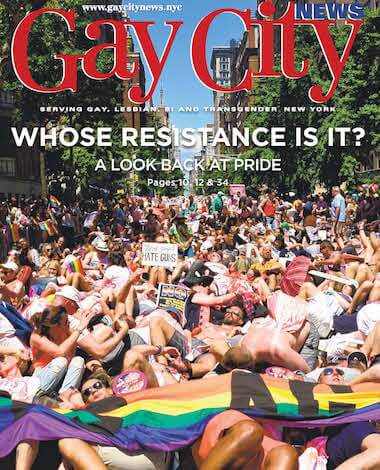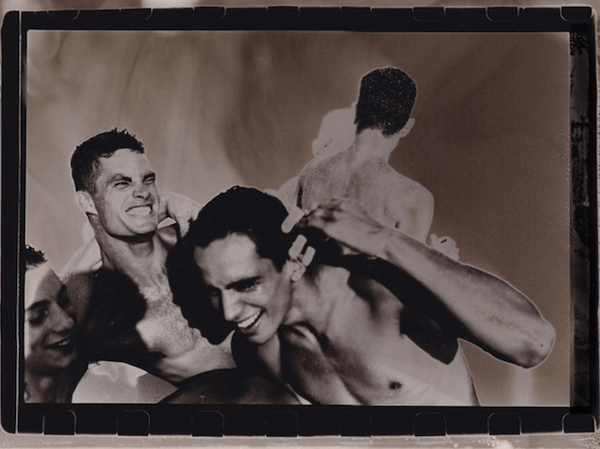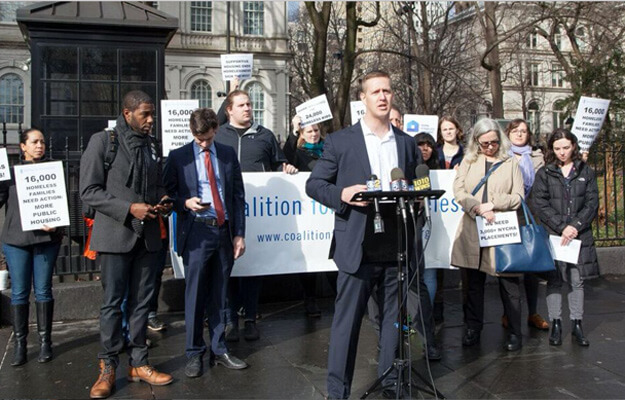Carrie Davis, the chief program and policy officer at Manhattan's LGBT Community Center.
“I don’t often like to be in the spotlight,” explained Carrie Davis, who has worked at the LGBT Community Center in Manhattan since 1998, first joining the organization as a transgender peer focusing much of her time on nighttime street outreach to sex workers.
Throughout her tenure at the Center, Davis, who has a master’s degree in social work, built up its Gender Identity Project, which provides counseling and group settings for transgender and other gender-nonconforming youth and adults, as well as their partners. Under her leadership, GIP developed a transgender cultural competency curriculum, which has been presented before more than 5,000 service providers in government, the non-profit world, educational institutions, and beyond.
Dramatically expanding her portfolio in recent years, Davis became the Center’s chief program and policy officer responsible for delivering human services programs –– in health, including HIV/ AIDS; mental health, including substance abuse; economic and educational opportunity; building families; and immigrant support –– to more than 9,000 people every year.
Brad Hoylman names 13th Street facility’s program/ policy chief as first transgender award recipient
Despite the breadth of those responsibilities, Davis continues to work closely with other advocates and public officials to advance specific policy goals of concern to the transgender community. Collaborating with city agencies including the NYPD, the Department of Correction, the Department of Health and Mental Hygiene, and the Human Resources Administration, she was at the forefront on a number of recent policy breakthroughs –– from the revision, in 2012, of the police department Patrol Guide to create procedures for respectful officer interactions with members of the transgender community when taking complaints and during investigations, questioning, searches, and arrests; to the establishment, last fall, of regulations making it easier for transgender New Yorkers to obtain revised birth certificates, most importantly by eliminating the requirement for genital surgery.
Davis’ engagement across a wide array of policy fronts, however, apparently has not instilled in her any deep need to be part of the headline. Laughing gently and saying she was uncertain if this reporter knew of her preference for a behind-the-scenes role, she explained, “I am happy to send other people forward.”
This week, State Senator Brad Hoylman took that option away from Davis. The out gay West Side Democrat, whose district includes the Center on West 13th Street, named her his choice for the Senate’s annual Women of Distinction Awards, in which each of the 63 members puts forward someone from their district.
“She has made significant strides for the transgender community and for the LGBT community overall,” Hoylman said in explaining his choice of Davis for the honor bestowed in a May 5 Albany ceremony. Then, adding, “Carrie is a role model for young people,” he noted the Senate’s repeated failure to take action on a transgender civil rights bill –– the Gender Expression Non-Discrimination Act, or GENDA –– which advocates have pressed for since gender identity and expression were excluded from the gay rights law enacted in late 2002.
“I feel I need to take every opportunity to remind my colleagues that this is the unfinished business of the LGBT civil rights movement and to remind them of the communities that I represent,” Hoylman said.
Davis is the first transgender honoree in the history of the Senate’s Women of Distinction Awards, he noted.
In her comments to Gay City News, Davis picked up on that historical first.
“The Senate honors women who have worked to improve their communities and to help people,” she said. “I would like to convey the message that I am not covered in the same way and protected in the same way as the other women being honored. And to comment that it is time to move forward.”
Davis noted that for many years, to the extent transgender concerns made their way into the discussion of public policy, the focus was on health issues –– both the medical aspects of transitioning and the high incidence of HIV among transgender women.
“We rarely talk about poverty,” she said, pointing out that transgender Americans, particularly transgender women of color, are among the poorest people in the nation. “We rarely talk about the link of HIV to poverty and so we talk about solutions that don’t authentically address the underlying problems.”
And poverty, in turn, Davis pointed out, is related to educational attainment.
“GENDA is at the top of the cascade,” she said. Lack of educational and employment opportunity, much of it based in discrimination, sets up the circumstances in which poor medical outcomes result.
“The time is right for an employment project for transgender people,” Davis continued. “We’re a very discrete population and we can measure our success with this population.”
Noting that nearly 70 percent of the transgender women who come through the doors at the Center seeking services face unemployment, she argued, “The vast majority of them want jobs, but they really don’t know how to navigate the obstacles they face.”
And, Davis asserted, “It’s sort of a no-brainer” that discrimination aimed at the transgender community also costs society in terms of public spending on social services and medical care of people without the opportunity to escape a life of poverty.
Despite widespread concerns within the LGBT community that the focus on marriage equality in recent years has obscured other pressing needs –– transgender rights and well-being prime among them –– Davis voiced confidence that “the foundations, the leaders” have an appreciation for and commitment to the bigger picture. Some, she acknowledged, might become “more relaxed” –– it’s only natural, she said; “we shouldn’t live our lives in a state of crisis.”
“But for many of us,” Davis continued, victory on marriage equality is “not enough. But it will be nice to check that off the list. And put our capital into something else.”
She made no prediction on whether investments made over the years on GENDA would yield a dividend in the Senate session that ends in June.
“The political calculus is not easily made,” Davis said. “My goal is to accumulate the political momentum so that when there is a vote, they will have heard us. I am not looking to beat anyone over the head.”
Both Hoylman and his Manhattan Democratic colleague, Daniel Squadron, who is GENDA’s lead sponsor, have for the past several years voiced bitter frustration with the Senate Republican leadership’s refusal to allow votes not only on that bill but also on a measure, on which Hoylman is the lead, that would ban licensed mental health professionals from conducting sexual orientation and gender expression change efforts –– so-called conversion or reparative therapy –– on minors.
Both GENDA and the conversion therapy ban have repeatedly passed the Democratic-dominated Assembly.
“It's shocking that Carrie –– an accomplished and admired member of our community –– is not afforded basic protections in housing, employment, and public accommodations, simply because of who she is,” Squadron said of Davis in an email message to Gay City News.
Charging that the GOP’s resistance on GENDA “is the shame of our state,” Squadron pledged to continue working with Hoylman to demand action on key LGBT legislative initiatives.
Hoylman said the arrest this week of the Senate Republican leader, Long Island’s Dean Skelos, on federal corruption charges put the remaining seven or eight weeks of the session under a cloud, but he also suggested it was possible that “a dramatic shift in leadership could raise opportunities for we Democrats.”
In the meanwhile, Davis’ presence on stage in Albany this week is intended to send a message to his colleagues.
“Much of the Senate’s actions are ceremonial,” Hoylman said. “We decree, proclaim, and pontificate at every opportunity. I am trying to use the levers at my disposal to make clear why action on GENDA is so important.”



































